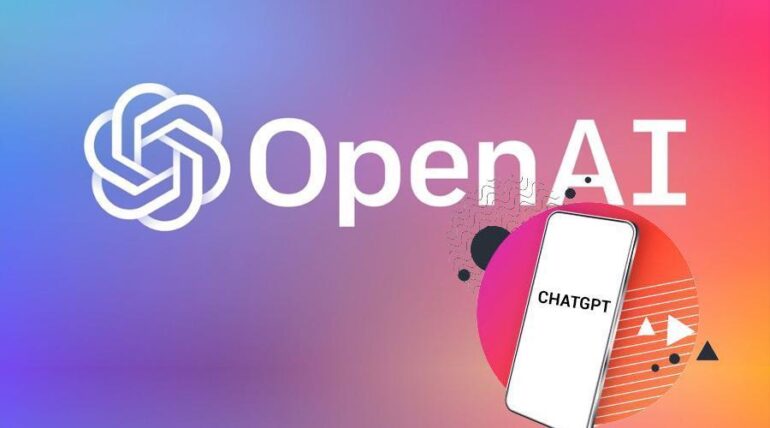TL;DR:
- OpenAI, creator of ChatGPT, is projected to exceed $1 billion in annual revenue, outpacing expectations.
- Monthly earnings of around $80 million have already surpassed earlier estimates.
- ChatGPT’s rapid growth, with 100 million users, marks a historic milestone.
- ChatGPT excels in human-like conversations and tasks, but some interactions have been contentious.
- The success of ChatGPT has spurred investment in AI across the industry.
- OpenAI introduces ChatGPT Enterprise with enhanced features, targeting Fortune 500 companies.
- Premium subscription service and API access sales are part of OpenAI’s revenue strategy.
- A deal with Microsoft entitles the tech giant to a significant share of OpenAI’s profits.
- OpenAI’s CEO expects additional costs of $100 billion for pursuing artificial general intelligence.
Main AI News:
The meteoric rise of OpenAI, the groundbreaking AI startup renowned for the ChatGPT phenomenon, is turning heads in the tech industry. A recent report unveils that OpenAI is poised to achieve a staggering annual revenue surpassing the $1 billion mark—a remarkable feat that could signify a remarkable turnaround for the company.
Revealing these financial details, The Information sheds light on OpenAI’s earnings, which have surpassed even the company’s own estimates. With a current monthly income of approximately $80 million, OpenAI’s performance has defied predictions that it would take until 2024 to breach the monumental $1 billion annual revenue milestone, as was projected by Reuters just last December.
Putting these figures into perspective, it’s worth noting that OpenAI’s annual revenue stood at a modest $28 million prior to the introduction of its revenue-generating initiative—making the recent surge all the more impressive. This transformative shift in financial fortune can be attributed largely to ChatGPT, an AI chatbot powered by OpenAI’s large language model (LLM), which has witnessed an unprecedented ascent in popularity. Surpassing the growth rates of internet giants like Instagram, Netflix, and TikTok, ChatGPT quickly garnered over 100 million users, cementing its status as a digital sensation.
ChatGPT’s uniqueness lies in its uncanny ability to simulate human conversation while successfully performing tasks like composing poetry, offering restaurant recommendations, and simplifying intricate subjects. However, it’s important to acknowledge that this digital marvel has occasionally been perceived as “unhinged” and prone to contentious interactions—a testament to its complex nature.
The unparalleled success of ChatGPT has set off a wave of enthusiasm in the realm of artificial intelligence, drawing substantial investments from both Big Tech players and other stakeholders. This upward trajectory could potentially aid OpenAI in offsetting its financial losses, which escalated to nearly $540 million in 2022 during the development phase of its flagship chatbot.
OpenAI’s strategy to bolster revenue has been evident this year, especially after the company achieved a valuation of roughly $27 billion following a $300 million share sale in April. The launch of ChatGPT Enterprise, a business-oriented iteration of the chatbot, has been a noteworthy development. This version boasts enhanced security and privacy features, and early adopters include prominent names like Canva, Estée Lauder, and PwC. Impressively, ChatGPT has found its way into over 80% of Fortune 500 companies within a span of just nine months since its initial release.
In addition to these advancements, OpenAI introduced a premium subscription service, priced at $20 a month, catering to its most dedicated users. Despite this shift towards monetization, casual users still enjoy free access to ChatGPT, albeit with potential restrictions during periods of high demand. Sam Altman, the CEO of OpenAI, acknowledged the necessity of monetizing ChatGPT due to the substantial computational costs associated with its operation.
OpenAI’s revenue streams extend beyond ChatGPT, encompassing the sale of API access to its AI models. Nevertheless, reaping the full benefits of this success may require time, considering the terms of OpenAI’s agreement with Microsoft. Under this deal, Microsoft is entitled to 75% of OpenAI’s profits until it recoups its $13 billion investment in the startup.
As OpenAI forges ahead, it’s important to highlight Altman’s anticipation of additional expenditures—around $100 billion—towards the pursuit of artificial general intelligence (AGI). While the journey ahead may present its share of financial challenges, OpenAI’s incredible resurgence is a testament to its innovative prowess and enduring impact on the tech landscape.
Conclusion:
OpenAI’s remarkable revenue surge signifies its ascendancy as a tech industry powerhouse. ChatGPT’s exceptional growth and monetization strategies have propelled OpenAI’s financial prospects to unprecedented heights. As the company continues to diversify its revenue streams and make strides in AI innovation, it is poised to influence the market significantly, attracting investments and reshaping the landscape of artificial intelligence.

